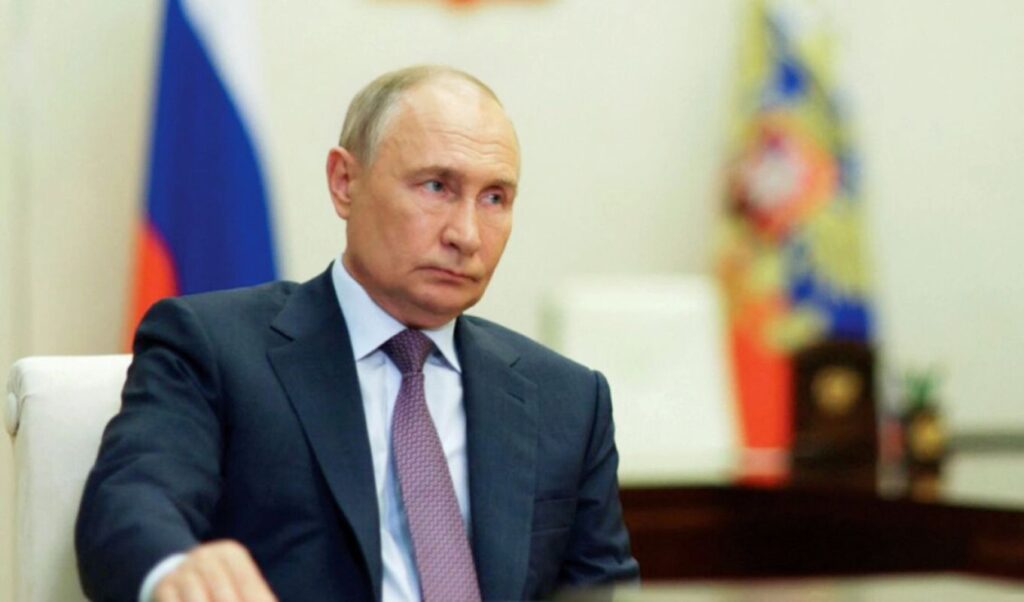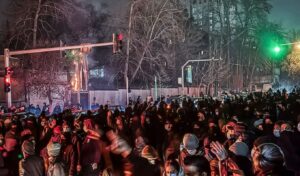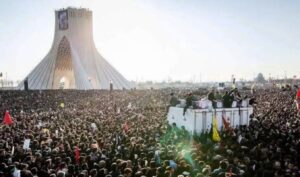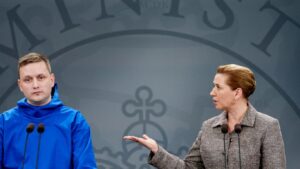After Donald Trump’s talks with EU officials at the White House on Monday afternoon, an impression was created that there was a common line regarding the next step in the peace process for Ukraine – namely a private meeting between Vladimir Putin and Volodymyr Zelensky. However, this image of consensus collapsed after Moscow’s reaction, according to today’s analysis by CNN.
Kremlin advisor Yuri Ushakov, referring to the Trump-Putin phone communication after the critical meetings, simply spoke of “examining the possibility of upgrading the level of representatives” of the two sides, without mention of leaders. In a similar spirit, Russian Foreign Minister Sergei Lavrov stated in yesterday’s interview that Moscow does not reject any form of talks, whether bilateral or trilateral, noting however that “high-level contacts require special preparation.”
As the American network emphasizes, this in Kremlin language means that the Russian side is far from agreeing to such a prospect, something that is not surprising. Putin started this war by unilaterally recognizing a piece of Ukrainian land (the so-called “People’s Republics” of Donetsk and Luhansk) as independent. He has argued many times in the past that Ukraine constitutes “an integral part of (Russian) history, culture and spiritual space,” and that its separation from Russia was a historical mistake.
If this meeting were to take place, as Orysia Lutsevych, director of the Russia and Eurasia program at the Chatham House think tank, emphasizes to CNN – Putin “would have to accept the failure that for him constitutes sitting at the same table with a president he considers ridiculous, from a country that doesn’t exist.”
CNN analysis: The Kremlin constantly questions the legitimacy of the Ukrainian president
This development would also signify, as the expert argues, a massive shift in the Kremlin narrative that would be difficult to explain to the Russian people. “He has subjected Russians to such extensive brainwashing through state television that Zelensky is a Nazi, that Kyiv is a puppet of the West… that Zelensky is illegitimate, so why suddenly talk to him?”, she states.
The Kremlin constantly questions the legitimacy of the Ukrainian president, focusing its criticism on the postponement of elections in Ukraine – elections that cannot be held while martial law remains in effect. In its most recent “peace” memorandum, Moscow demands that Kyiv proceed with elections before achieving any final peace agreement. Putin and other Russian officials avoid referring to Zelensky by name, using instead the derogatory term “Kyiv regime.” It’s also worth recalling that Zelensky himself traveled to Turkey for the first direct talks between the two sides in mid-May, while Putin limited himself to sending a delegation headed by a history textbook author.
Tatiana Stanovaya, senior fellow at the Carnegie Russia Eurasia Center and founder of R.Politik, argues that although Putin doesn’t consider a meeting with Zelensky critical in a war that for him is more about confrontation with the West than with Ukraine, he could nonetheless accept it if he believed it would be successful.
“Russia’s basic demands must be put on the table and Zelensky must be willing to discuss them,” she told CNN on Tuesday. So far Zelensky rejects these demands, which include ceding territories that Kyiv still controls. But Putin, as she said, considers Trump “key” to changing this.
“Trump is seen as a ‘facilitator’ of the Russian vision for settlement and for this reason the US is supposed to cooperate with Kyiv to pressure it to become more flexible, more open to Russian demands,” she said.
Stanovaya believes Russia may try to keep the US on its side by doing what Ushakov proposed, namely a new series of talks in Constantinople, but with higher-level representation, perhaps with Ushakov himself and Foreign Minister Lavrov. But Putin won’t risk being ambushed, meeting face-to-face with Zelensky, only to hear all his demands rejected.
On Monday evening, after the lengthy meetings in the Oval Office, Trump wrote on Truth Social that he “started arrangements for a meeting… between President Putin and President Zelensky.” By the next morning, speaking on Fox News’ morning show, he seemed to have realized this wasn’t a given. “I kind of set it up with Putin and Zelensky, but you know, they’re the ones making the decisions. We’re 7,000 miles away,” he said.
Putin has no reason to consent at this stage
Putin has no reason to consent at this stage. Without making any concessions, he has been rewarded with a major summit in Alaska, with the withdrawal of Trump’s demand for a ceasefire before peace talks, and with the collapse of all ultimatums for further sanctions. Although he had somewhat reduced the intensity of nightly drone attacks on Ukrainian cities in early August, he intensified them again on Monday night, launching 270 drones and 10 missiles. Trump’s pressure on Zelensky may not yet have produced the results Moscow seeks, but there’s always military force as an alternative.
The only thing Moscow cannot predict at this stage is whom Trump will blame when this latest peace attempt also “fails.”




